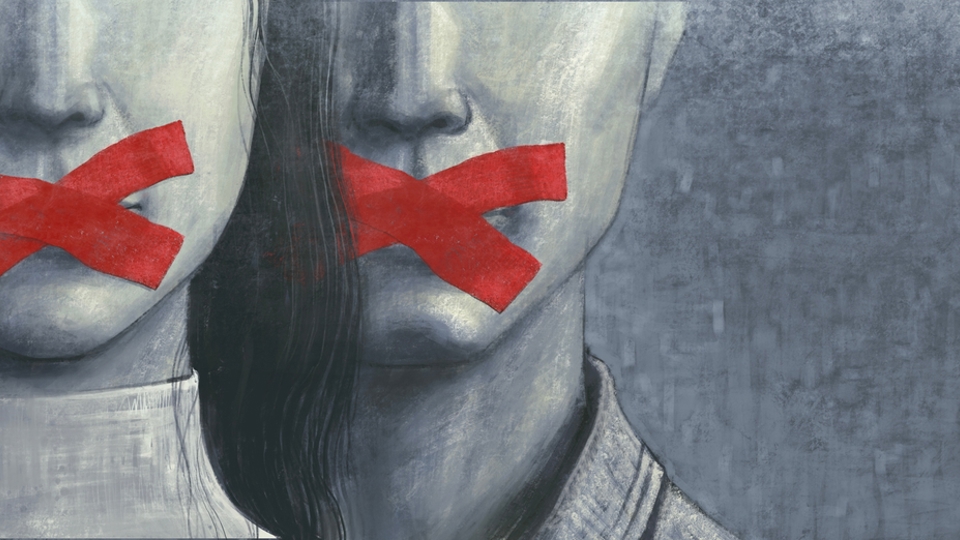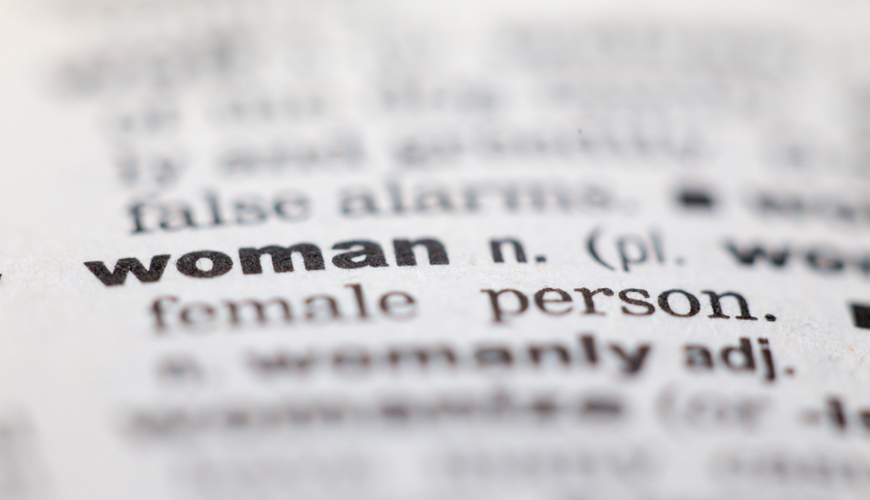'Bigotry', the Supreme Court and what this week taught us about judicial independence

When Maggie Chapman MSP branded the Supreme Court’s decision in For Women Scotland vs The Scottish Ministers "bigotry, prejudice and hatred”, the legal profession struck back.
But what has this past week, and a separate ruling in a case against a prominent English barrister accused of undermining the courts, revealed about threats to judicial independence?
What did Maggie Chapman MSP say about the Supreme Court?
In their judgement last week, the Justices acknowledged the “strength of feeling” of campaigners involved in a bitter struggle of gender politics, equality law and human rights often marred by “controversy”.
That strength of feeling was evidenced almost immediately with champagne celebrations outside the court when Lord Hodge and his peers announced that the term woman in the equalities act is to refer to biological sex. JK Rowling, a figurehead in the gender critical movement, toasted the decision with a cigar on her yacht in the Caribbean. Elsewhere, demonstrations were held in support of trans rights, condemning the court’s decision.
Green MSP Maggie Chapman, deputy convener of Holyrood’s Equalities, Human Rights and Civil Justice Committee, lent her voice to those condemnations. Speaking at a rally in Aberdeen, Ms Chapman said: "We say not in our name to the bigotry, prejudice and hatred that we see coming from the Supreme Court and from so many other institutions in our society."
These comments from a long-time supporter of trans rights were quickly condemned by senior figures in the legal profession. Roddy Dunlop KC, Dean of the Faculty of Advocates, wrote at length to Ms Chapman (and committee convener Karen Adam MSP) calling for her to consider her position both as deputy convener of the committee and as a member, and to issue an apology.
How have the Law Society of Scotland and Faculty of Advocates responded?
In the full text of the letter, Mr Dunlop wrote: “We are talking about the apex court of these islands, in this instance made up of a bench which included two of Scotland’s finest legal minds, as well as two women. No sensible person could read their dispassionate analysis and conclude that they were swayed by such matters.”
On behalf of the Faculty he concluded: “Her behaviour in this instance is utterly beyond the pale.”
Shortly after, Law Society of Scotland President Susan Murray added: “Our judiciary fulfils a longstanding and important constitutional role in upholding the rule of law and interpreting legislation as passed by Parliament.
“The Supreme Court’s task is to consider the most difficult and complex legal questions and it must be able to do so without fear or favour.
“It is entirely unacceptable for any politician to discredit the work of our judges when they seek to undertake this task fairly and independently.”
Former Deputy President Lord Hope also weighed in. He said: “I do not think that she should stand down or be removed from her post but she should be more careful with her language.
“The Supreme Court justices were doing what they were required to do, which was to address the question which was before them without fear or favour, affection or ill will, and to bring clarity to a problem that was of concern to us all.”
Opposition came from politicians too – Ash Regan, Alba MSP, said she had reported Ms Chapman to the Presiding Officer and standards committee. She added: “MSPs have a duty to uphold the law, not undermine it.”
Ms Chapman herself stood by her remarks and said on Tuesday that she would not apologise and that institutions and laws reflected transphobia and prejudice in society. She said that the rule of law “stands” and that this did not conflict with her role standing up for trans constituents.

Analysis
Mr Dunlop cited the statutory duty to uphold the independence of the judiciary: s.1(1)(a) of the Judiciary and Courts (Scotland) Act 2008). Under this guarantee of continued judicial independence, prescribed figures including MSPs must “uphold the continued independence of the judiciary”, including specifically that of the Supreme Court.
The Act places special emphasis on the First Minister, the Lord Advocate and Scottish Ministers to “have regard to the need for the judiciary to have the support necessary to enable them to carry out their functions”, a duty it does not explicitly bestow on other members of the Parliament. (Indeed John Swinney has been relatively muted in his response to the ruling (a defeat for his government), and has reiterated: “The Scottish government accepts the judgement of the Supreme Court.”)
Ms Chapman may not be a Minister, but her role on a committee with an express focus on human rights and justice may now be untenable.
The Faculty also cited the Commonwealth Bar Leaders Goa Declaration 2023 which restated the need for an independent and impartial judiciary, in part to ensure public confidence in the legal system. That public confidence is crucial: over the past weeks, the judiciary and politicians have been at pains to acknowledge the charged, emotive and divisive nature of the issues at the heart of For Women Scotland Ltd v The Scottish Ministers. In such an atmosphere, such an explicit and damning questioning of the Court’s motives and decision-making from Ms Chapman will likely have undermined, in some quarters at least, public confidence in the judgment.
Of course we have been here before. In a similarly-charged moment of public debate, the 2016 court decision on the question of whether or not the Constitution of the United Kingdom permitted the government to use the royal prerogative to invoke Article 50 led to one of the more infamous British headlines of the 21st century: ENEMIES OF THE PEOPLE (Daily Mail). The paper, in a move which provoked a ferocious backlash from the legal profession, branded the judges in the case as “out of touch”, and accused them of “defying” the will of the British people on Brexit.

The press is not bound to the same statutory duties as elected officials like Ms Chapman or members of the legal profession, though editors must follow Codes of Conduct regarding inaccuracy, harassment and discrimination. Nevertheless, it proved a clarion call restating the importance of judges’ independence, rallying MPs, Peers, judges, solicitors, advocates and barristers to speak with a clear voice on the matter. Lord Neuberger, then president of the Supreme Court, said: “The rule of law together with democracy is one of the two pillars on which our society is based. And therefore if, without good reason, the media or anyone else undermines the judiciary that risks undermining our society.”
What of free speech — when is it acceptable to criticise the judiciary?
Journal readers who take an interest in the profession south of the border may be aware that a tribunal published a final sanction report last month dismissing misconduct charges against prominent barrister Dr Charlotte Proudman in a case brought by the Bar Standards Board. The case, which was heard in December, came to a conclusion some three years after Dr Proudman posted a string of 14 tweets commenting on a judgement by former High Court judge Sir Jonathan Cohen in a case on which she had been junior counsel.
The tribunal had to adjudicate if Dr Proudman’s sentiments strayed beyond permissible professional conduct, and they concluded that they did not: “They were robustly expressed opinions on an important matter of public interest.”
Dr Proudman and Ms Chapman hold very different positions, and were commenting separately on two very distinct matters with varying degrees of public attention. What perhaps sets the two apart is the detail and specificity of the Proudman tweets in a case she was close to, and the generalised claims made by Ms Chapman.
“These tweets would not have been pleasant for any judge to read”, the barristers’ tribunal added in their ruling in the Proudman case. “No-one would enjoy getting comments like that when they have done their professional best in a difficult situation. They may even be thought to be hurtful.
“But they are not gravely damaging to the judiciary. We take the view the judiciary of England and Wales is far more robust than that.”
Conclusion
It is not for this Journal to pass judgement on the robustness or otherwise of the Justices of the Supreme Court. But the robustness of public confidence in those judges, and in the wider judiciary and rule of law, is essential to the work of all in and around the legal system.
The profession has been swift to condemn Ms Chapman’s remarks, and she may face further sanction or consequence in Parliament. Time will tell if her claims to the “prejudice” of the Court undermine public faith in the decision, and perhaps more presciently, how public bodies implement change in the wake of For Women Scotland Ltd v The Scottish ministers.







